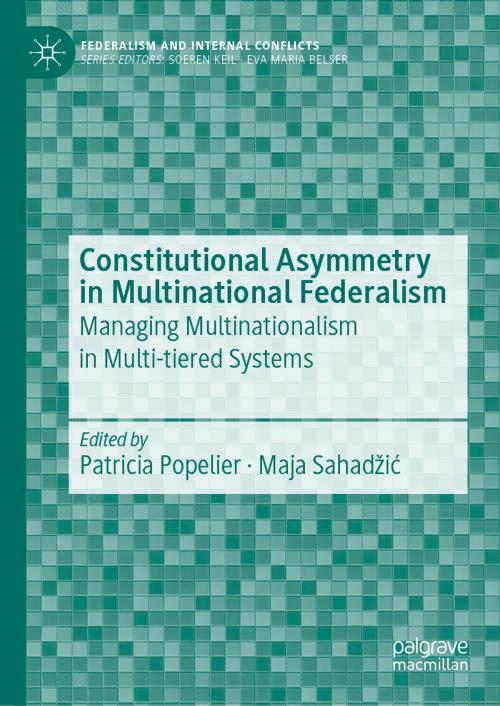Constitutional Asymmetry in Multinational Federalism
Managing Multinationalism in Multi-tiered Systems
Nonfiction, Social & Cultural Studies, Political Science, Government, Public Policy, International, International Relations| Author: | ISBN: | 9783030117016 | |
| Publisher: | Springer International Publishing | Publication: | February 18, 2019 |
| Imprint: | Palgrave Macmillan | Language: | English |
| Author: | |
| ISBN: | 9783030117016 |
| Publisher: | Springer International Publishing |
| Publication: | February 18, 2019 |
| Imprint: | Palgrave Macmillan |
| Language: | English |
This edited volume examines the link between constitutional asymmetry and multinationalism in multi-tiered systems through a comprehensive and rigorous comparative analysis, covering countries in Europe, Africa and Asia. Constitutional asymmetry means that the component units of a federation do not have equal relationships with each other and with the federal authority. In traditional federal theories, this is considered an anomaly. The degree of symmetry and asymmetry is seen as an indicator of the degree of harmony or conflict within each system. Therefore symmetrisation processes tend to be encouraged to secure the stability of the political system. However, scholars have linked asymmetry with multinational federalism, presenting federalism and asymmetry as forms of ethnical conflict management. This book offers insights into the different types of constitutional asymmetry, the factors that stimulate symmetrisation and asymmetrisation processes, and the ways in which constitutional asymmetry is linked with multinationalism.
This edited volume examines the link between constitutional asymmetry and multinationalism in multi-tiered systems through a comprehensive and rigorous comparative analysis, covering countries in Europe, Africa and Asia. Constitutional asymmetry means that the component units of a federation do not have equal relationships with each other and with the federal authority. In traditional federal theories, this is considered an anomaly. The degree of symmetry and asymmetry is seen as an indicator of the degree of harmony or conflict within each system. Therefore symmetrisation processes tend to be encouraged to secure the stability of the political system. However, scholars have linked asymmetry with multinational federalism, presenting federalism and asymmetry as forms of ethnical conflict management. This book offers insights into the different types of constitutional asymmetry, the factors that stimulate symmetrisation and asymmetrisation processes, and the ways in which constitutional asymmetry is linked with multinationalism.















